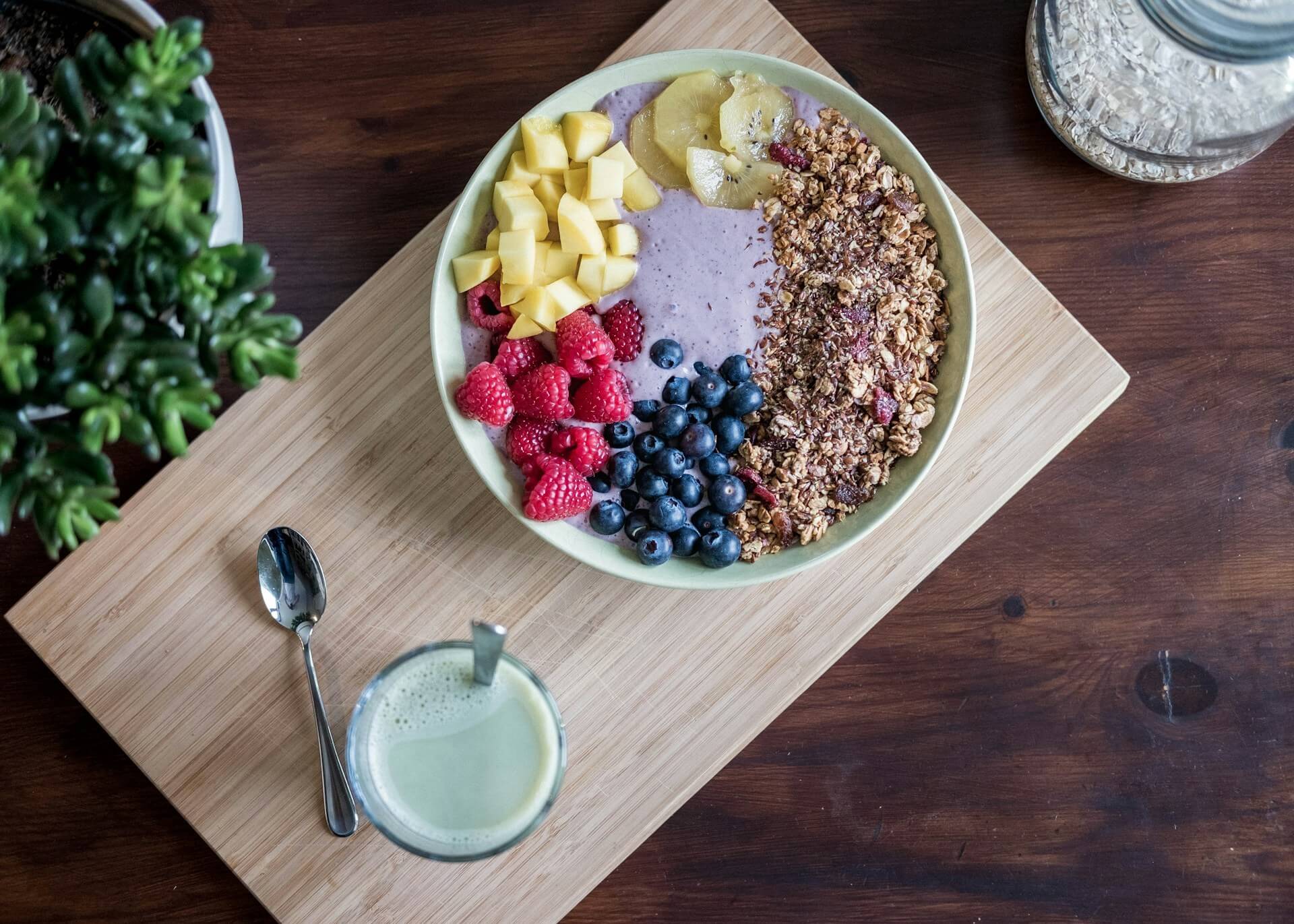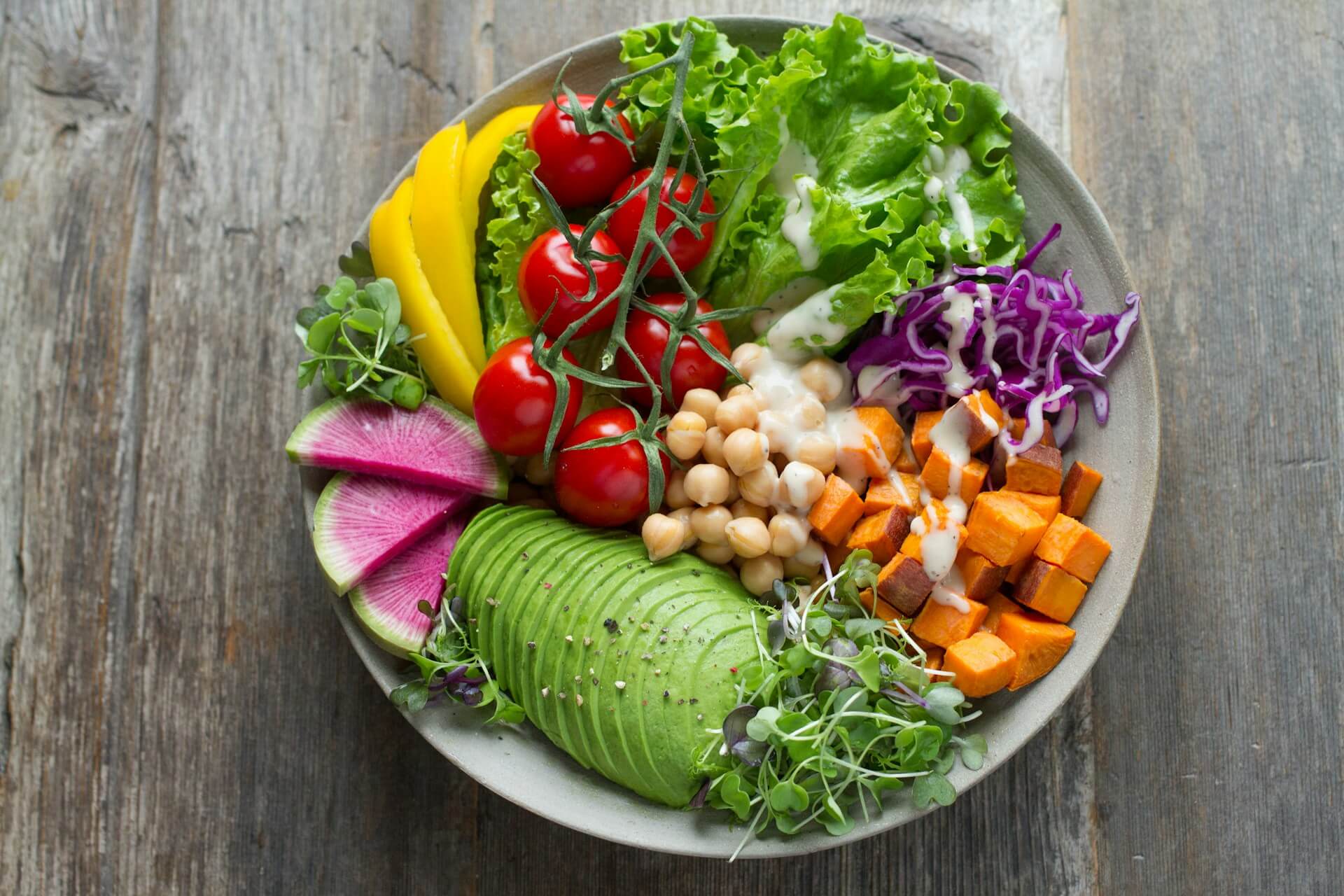2. Choose low-glycaemic carbohydrates
Carbohydrates are essential, but not all carbs are created equal. Low-glycaemic carbohydrates are those found in fruit and low ground vegetables or root vegetables like potatoes and sweet potatoes, and in whole grain breads and cereals like brown rice and pasta, high fibre whole grain breads and cereals, long grain rice, whole grain noodles and crackers. These have a low-glycaemic index and help regulate blood sugar levels and provide long-lasting energy. Avoid white food that is high in added sugars, and always check labels for ingredients like fructose, sucrose, or syrups.
Remember not to peel or juice your fruit. You must eat your fruit with skins where possible. Eating it as whole fruit gives your body the good fibre and antioxidants.
3. Embrace Omega-3 Fatty Acids
Omega-3s is a micronutrient that is crucial for brain, heart, and skin health, and they also help reduce inflammation. Incorporate oily fish like salmon, tuna, and sardines into your diet, or if you’re vegan, look to nuts, seeds, seaweed and algal oil as good sources of Omega-3s.
4. Boost Your Fibre Intake
Fibre doesn’t get absorbed into the body, but it acts as a really good support system for the gut. You get insoluble fibre that pushes everything through and you get soluble fibre that absorbs water and keeps the stool nice and soft to prevent you from getting constipated. Focus on getting fibre from whole grains, fruits with skins, leafy vegetables, nuts, and seeds. Fibre also has anti-cancer properties, making it an essential part of a healthy diet.
5. Don’t Forget Iron, Calcium, and Magnesium
Iron is crucial for women, especially during their reproductive years. Many people are not getting the iron that we need. Red meat, kangaroo, chicken, seafood are fantastic sources of haem iron, which is easily absorbed by the body. If you are vegan or vegetarian, focus on legumes, leafy greens, and seeds. Calcium and magnesium are also important for bone health and muscle function—dairy, seeds, nuts like almonds and green vegetables are great options. And as young kids or young women, we need to make sure we’re getting all of that calcium in so that we can build the foundation for strong bones as we get older and reduce our risk of osteoporosis.
6. Get Your Daily Dose of Vitamin D
Vitamin D is essential for every single cell in the body, influencing everything from bone strength to mental well-being. While oily fish, eggs, and fortified foods provide some Vitamin D, sunlight is the best source. In winter, consider a supplement to ensure you’re meeting your needs.
7. Ensure Adequate Vitamin K2
Vitamin K2 plays a crucial role in directing calcium we consume goes into to the bones and away from the arteries. Fermented foods like sauerkraut, kimchi, and certain cheeses are rich sources of Vitamin K2, helping to keep your bones strong and your heart healthy.
8. Avoid Fad Diets
Fad diets often lead to poor mental health and a negative relationship with food. They can cause nutritional imbalances and lead to muscle loss. Instead, focus on a balanced diet that suits your body and lifestyle. Whether you follow a vegan, omnivorous, or ketogenic diet, it’s essential to find what works best for you.
9. Address Women’s Health Concerns with Good Nutrition
Nutrition plays a vital role in managing conditions like polycystic ovary syndrome (PCOS), endometriosis, pelvic pain, and inflammation. A well-rounded diet can help alleviate symptoms and promote overall well-being.
Trust your gut—literally. Listen to your body and mind, nourish them with the right nutrients to stay strong and healthy. Women’s health is complex, but with the right nutrition, you can support your body through every stage of life.
Ready to take control of your nutrition? No matter where you are, Evoca’s telehealth dietitian program is here to help. Our expert dietitians are available to guide you on your journey to better health, providing personalized advice tailored to your needs.
Book your telehealth appointment today and start your journey to a healthier you.












